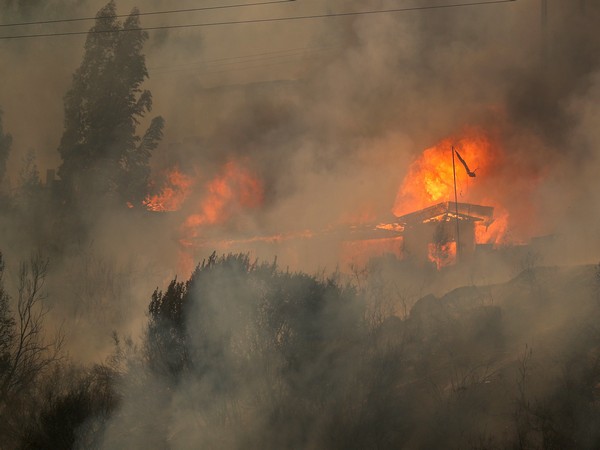
Spain braces for wildfires as beef farmers battle red tape
Mar 03, 2024
Madrid [Spain], March 3: Across Europe, farmers have jammed roads, burned tyres and dumped manure in protest at a host of pressures threatening their livelihoods and way of life. In the province of Asturias, Spain, authorities are preparing for worse.
Last spring, in an unprecedented conflagration there, nearly 300 wildfires leapt across motorways, forcing the evacuation of hundreds of residents and reaching the edge of regional capital Oviedo. The authorities blamed many of the fires on farmers.
Decades-old grievances about government interference in traditional farming methods are combining with climate change to create tinderbox conditions, authorities say.
The regional government, prosecutors and environmental groups say that some cattle-farmers deliberately set last year's blazes to free up low-cost grazing pasture - fires that got out of hand due to exceptionally warm, dry conditions. The farmers deny this.
Four unnamed people were arrested and 31 are under investigation for the alleged arson, police said.
Alejandro Calvo, head of Asturias' fire prevention and extinction department, told Reuters the region has increased its budget to avert and quench wildfires by almost 20%, to 70 million euros ($75.7 million), and hired more firefighters and foresters to establish 24-hour surveillance systems.
At the root of the problem, the authorities say, is the farmers' ancestral practice of intentionally burning scrub. The chestnut-coloured cattle that roam Asturias' mountains and valleys date back to the Iron Age. Their grass-fed flesh is relished by gourmets, their free-ranging habit prized over meat reared under intensive methods.
Vegetation left unchecked grows chaotically over grasslands, limiting access for cows, which can't digest woody or thorny plants. A carefully timed blaze can clear the area, generate new swathes of pasture and deter predators.
But bureaucracy and warmer weather have changed that story. Since 2004, a permit is legally required to carry out controlled burns: Acquiring one involves presenting a detailed plan, a topographical map of the area and documents proving land ownership, among other restrictions.
And Calvo says the region has seen a consolidated increase in average temperatures of two degrees over the past decade - part of a broader trend across Spain confirmed by the meteorological office - making traditional fire-setting more dangerous.
On the other side of the argument, Jose Ramon Garcia, head of the farmers' union UCA, blames the authorities.
He said the regional leadership was not managing flammable undergrowth well enough, so most large fires are down to natural causes. Deliberate ones cause limited damage, he argued.
He himself was convicted in a local court in 2016 of illegally starting a fire that devastated 38 hectares (94 acres), which he denies. Spain's Supreme Court revoked his prison sentence on appeal but upheld the conviction.
According to the most recent official data from Spain's environment ministry, events such as lightning are to blame for fewer than five in 100 fires in the region. That data says nearly eight in 10 fires in Asturias are started on purpose.
Source: Fijian Broadcasting Corporation






